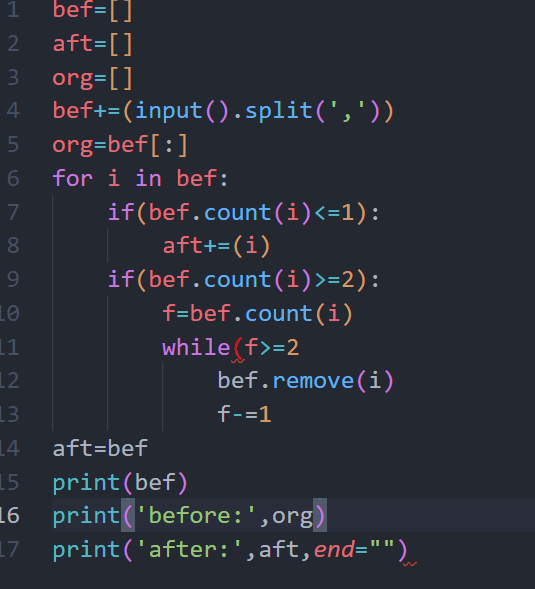对列表中数据还原处理
bef=[]
aft=[]
org=[]
bef+=(input().split(‘,’))
org=bef[:]
for i in bef:
if(bef.count(i)<=1):
aft+=(i)
if(bef.count(i)>=2):
f=bef.count(i)
while(f>=2):
bef.remove(i)
f-=1
aft=bef
print(bef)
for i in bef:
if(i.isdigit()==True):
aft.append(int(i))
print(‘before:’,org)
print(‘after:’,aft,end=””)
#测试数据
1,7,6,7,7,True,’a’,9.8,’a’,True
#before: [1, 7, 6, 7, 7, True, ‘a’, 9.8, ‘a’, True]
#after: [1, 6, 7, 9.8, ‘a’, True]
#目标答案:
#目的
#不留重复数据,每个只留一个,原列表不变。
#目前问题
#i.isdigit()使用时遍历浮点数和字符串时会错误,又必须把input读入的str转换回去。



 关于 LearnKu
关于 LearnKu




demo code